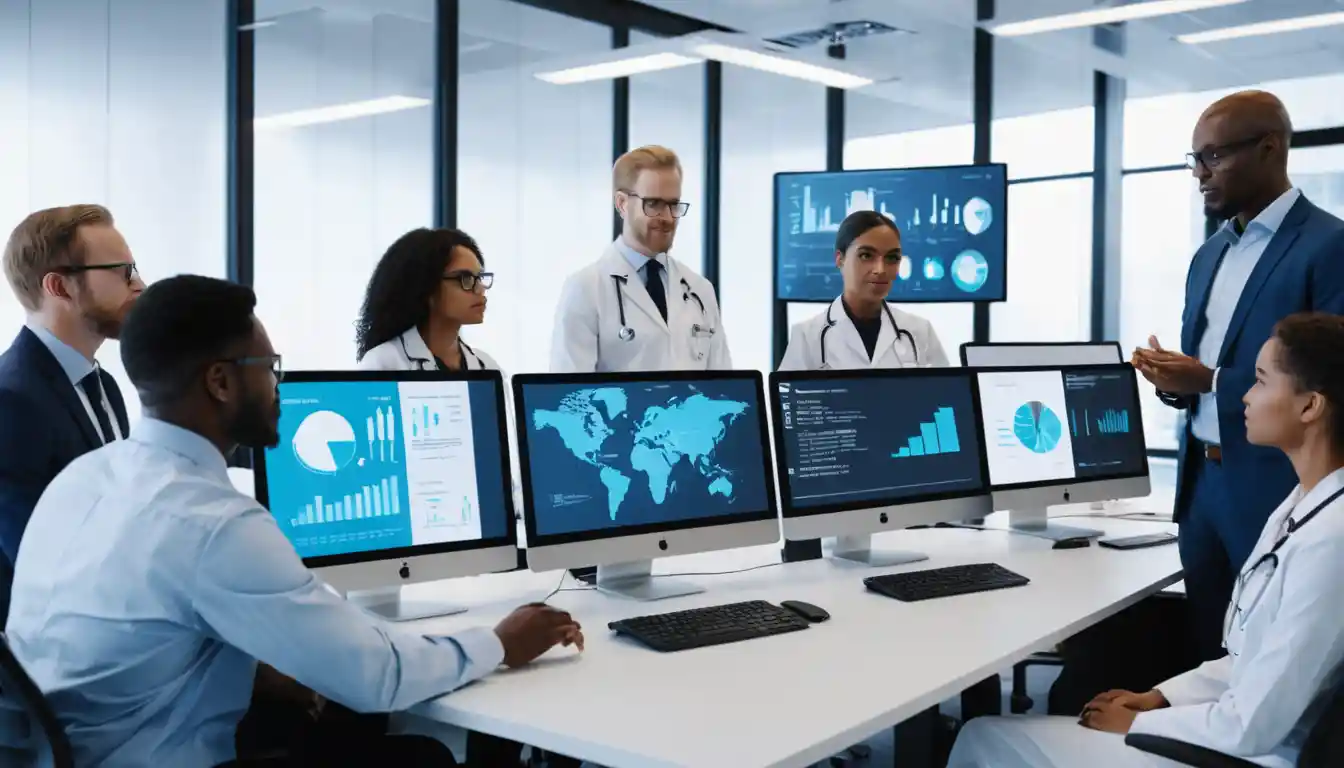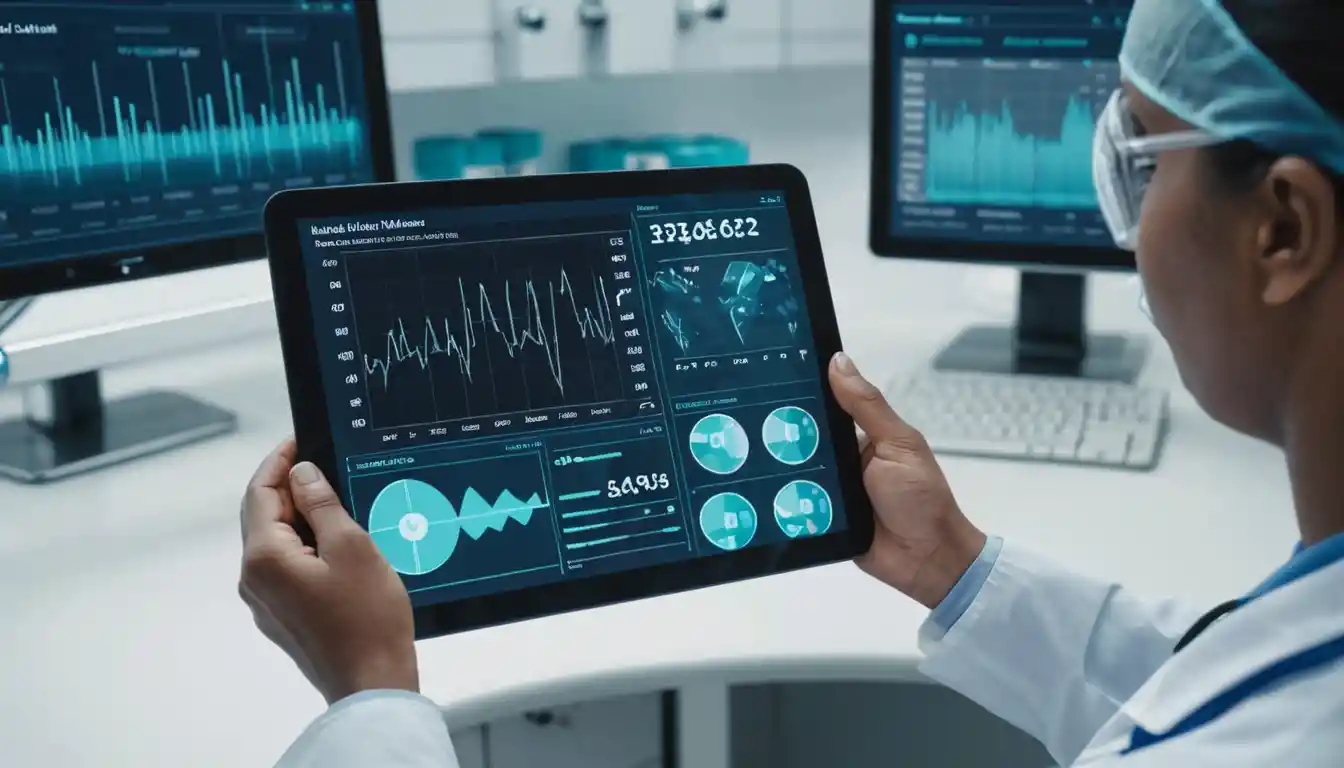Health Information Technology Careers to Explore Now

The healthcare industry is evolving at an unprecedented pace, driven by advances in technology. One of the most significant transformations is the integration of Health Information Technology (HIT) to improve patient care, streamline operations, and enhance efficiency. As a result, health information technology careers are becoming more in demand, offering professionals a unique opportunity to make a significant impact on the healthcare sector. If you’re interested in a career that combines healthcare knowledge with cutting-edge technology, this field might be the perfect fit for you.
In this blog post, we will explore various health information technology careers, the skills required, and how you can get started in this rewarding field. Whether you’re just starting your career journey or looking to make a shift, this comprehensive guide will provide valuable insights.
What Are Health Information Technology Careers?
Health Information Technology (HIT) careers encompass a broad range of roles that focus on managing and analyzing health data. These professionals work at the intersection of healthcare and technology, ensuring that patient data is properly managed, secured, and utilized to improve care outcomes. The growth of electronic health records (EHR), telemedicine, and health analytics has fueled the demand for skilled professionals in this area.
Health information technology careers not only offer job security but also provide the opportunity to contribute to a better healthcare system. These roles are pivotal in optimizing patient care, reducing healthcare costs, and enhancing operational efficiency.
Key Health Information Technology Careers to Explore
The beauty of health information technology careers is the variety of roles available. Whether you’re interested in data management, cybersecurity, or systems analysis, there’s something for everyone. Below, we explore some of the top career paths in health information technology:
Health Information Manager
A health information manager is responsible for overseeing the collection, organization, and storage of healthcare data. They ensure that the healthcare facility complies with regulations, such as the Health Insurance Portability and Accountability Act (HIPAA), and maintain the accuracy and security of patient information.
Key Responsibilities:
- Oversee the organization of health records.
- Ensure compliance with legal and regulatory requirements.
- Manage healthcare information systems and technologies.
Skills Required:
- Strong knowledge of healthcare laws and regulations.
- Proficiency in health information software.
- Attention to detail and strong organizational skills.
Job Outlook: Health information management is one of the fastest-growing fields in healthcare, with opportunities across hospitals, clinics, insurance companies, and government agencies. In the U.S., the Bureau of Labor Statistics (BLS) projects the employment of health information managers to grow by 9% from 2020 to 2030.
Clinical Informaticist
Clinical informaticists play a vital role in bridging the gap between healthcare providers and technology. These professionals apply informatics principles to ensure that health information systems are used effectively to improve patient care.
Key Responsibilities:
- Collaborate with clinicians to optimize health IT systems.
- Evaluate the effectiveness of healthcare technology.
- Train healthcare staff on using health information systems.
Skills Required:
- Expertise in healthcare data analytics.
- Knowledge of clinical workflows.
- Strong communication skills to interact with clinicians and IT professionals.
Job Outlook: As more healthcare facilities adopt electronic health records (EHR) systems, the demand for clinical informaticists continues to rise. Professionals in this role are needed to ensure the smooth integration of technology into clinical practices, improving both patient outcomes and healthcare efficiency.

Health Data Analyst
Health data analysts are essential in transforming raw healthcare data into actionable insights. They use data analytics tools to interpret trends, patterns, and outcomes, which are then used to improve healthcare practices and decision-making.
Key Responsibilities:
- Analyze healthcare data to identify trends and patterns.
- Provide data-driven recommendations to healthcare providers.
- Support the development of policies aimed at improving patient care.
Skills Required:
- Proficiency in data analysis software (e.g., SQL, Excel).
- Knowledge of healthcare metrics and key performance indicators (KPIs).
- Strong analytical and problem-solving abilities.
Job Outlook: With the growing focus on data-driven healthcare, health data analysts are in high demand. This role offers a wide range of opportunities in hospitals, health insurance companies, research organizations, and government agencies.
Health IT Specialist
Health IT specialists are responsible for implementing and maintaining electronic health records (EHR) systems and other health-related technologies. They work to ensure that these systems run smoothly, are secure, and meet the specific needs of healthcare providers.
Key Responsibilities:
- Install and configure health IT systems.
- Provide technical support to healthcare staff.
- Ensure the security and confidentiality of patient data.
Skills Required:
- Knowledge of health IT systems and software.
- Strong troubleshooting and problem-solving skills.
- Understanding of healthcare data security and privacy laws.
Job Outlook: As healthcare institutions continue to adopt digital tools, the demand for health IT specialists will keep rising. These professionals are integral to ensuring that health systems remain functional, secure, and compliant.
Telemedicine Coordinator
Telemedicine coordinators play a key role in managing and overseeing telemedicine services, which allow patients to consult with healthcare providers remotely. This position involves ensuring the technology runs smoothly, managing patient appointments, and ensuring compliance with telehealth regulations.
Key Responsibilities:
- Coordinate telemedicine appointments and services.
- Ensure the technology platform meets regulatory standards.
- Support patients and healthcare providers in using telemedicine systems.
Skills Required:
- Strong knowledge of telemedicine technologies.
- Familiarity with healthcare laws and telemedicine regulations.
- Excellent communication and organizational skills.
Job Outlook: Telemedicine is rapidly growing in popularity, especially in light of recent global health challenges. As more healthcare organizations offer remote services, the need for skilled telemedicine coordinators will continue to increase.
Skills Needed for Health Information Technology Careers
To succeed in health information technology careers, you need a combination of technical skills and a solid understanding of the healthcare sector. Here are some of the most important skills to develop:

Technical Expertise: A strong foundation in IT, including knowledge of database management, software development, and cybersecurity, is crucial.
Understanding of Healthcare Systems: Familiarity with healthcare processes, medical terminology, and regulations is essential.
Analytical Skills: Many health IT roles, like health data analysts, require the ability to analyze and interpret complex data sets.
Communication Skills: Whether you’re training staff or working with healthcare providers, the ability to communicate complex technical concepts is essential.
Attention to Detail: Healthcare data is critical, and even a small error can have significant consequences, so accuracy is key.
How to Get Started in Health Information Technology Careers
Getting started in health information technology careers typically involves a combination of education, certifications, and hands-on experience. Here’s a step-by-step guide to help you begin your journey:
Earn a Relevant Degree
A degree in health information technology, healthcare management, or a related field is a great starting point. Many colleges and universities offer specialized programs tailored to HIT careers. You can pursue an associate’s, bachelor’s, or master’s degree, depending on your career goals.
Get Certified
Certification can help you stand out in the competitive HIT job market. Some well-known certifications include:
- Certified Health Information Management (CHIM)
- Certified Health Data Analyst (CHDA)
- Certified Professional in Healthcare Information and Management Systems (CPHIMS)
Gain Practical Experience
Internships or entry-level positions in healthcare IT can provide valuable hands-on experience. Even volunteer work in healthcare settings can help you build your resume and gain practical knowledge.
Stay Current with Industry Trends
Health information technology is an ever-evolving field, so it’s essential to stay up-to-date with the latest trends, software, and regulations. Joining professional organizations like the Healthcare Information and Management Systems Society (HIMSS) can help you stay informed and connected.
The Future of Health Information Technology Careers
The future of health information technology careers looks promising, with new advancements in artificial intelligence, machine learning, and big data analytics driving further growth. As healthcare becomes more digitized, the need for skilled professionals who can manage, secure, and analyze healthcare data will continue to rise.
Moreover, with the ongoing shift toward value-based care, there’s an increasing focus on patient outcomes and the need for data-driven decision-making. This presents opportunities for professionals in health information technology to shape the future of healthcare.

Frequently Asked Questions
What is a Health Information Technology Career?
A Health Information Technology (HIT) career involves working at the intersection of healthcare and technology, focusing on managing and analyzing health data. Professionals in this field ensure the security, accuracy, and efficiency of healthcare systems that store and process patient information, such as electronic health records (EHRs). These careers can range from roles in health data analysis to IT system management, all aimed at improving healthcare services.
What qualifications are needed to start a Health Information Technology career?
To start a career in Health Information Technology, a degree in health information management, healthcare technology, or a related field is often required. Depending on the role, certifications such as Certified Health Information Management (CHIM) or Certified Health Data Analyst (CHDA) may also be beneficial. Additionally, gaining hands-on experience through internships or entry-level jobs in healthcare settings can be crucial to building your skills and expertise.
What types of jobs are available in Health Information Technology?
Health Information Technology offers a wide range of career opportunities, including health information manager, clinical informaticist, health data analyst, health IT specialist, and telemedicine coordinator. Each of these roles plays a critical part in ensuring the efficiency, security, and accuracy of healthcare information systems, with some positions requiring a focus on technical IT skills, while others may need healthcare domain expertise.
Is there a demand for Health Information Technology professionals?
Yes, the demand for Health Information Technology professionals is on the rise, driven by the growing adoption of electronic health records (EHRs), telemedicine, and the need for secure, data-driven decision-making in healthcare. As healthcare continues to embrace digital tools, there is a strong need for skilled professionals who can manage, protect, and analyze health data. This trend is expected to continue as the healthcare industry becomes increasingly reliant on technology.
How can I stay updated in the Health Information Technology field?
To stay current in the Health Information Technology field, it’s important to continue your education through certification programs, workshops, and attending industry conferences. You can also join professional organizations like the Healthcare Information and Management Systems Society (HIMSS) to stay connected with peers and keep up with the latest trends, technologies, and regulations affecting the healthcare industry. Continuing education ensures that you remain competitive and knowledgeable in this rapidly evolving field.
Conclusion
Health information technology careers offer exciting opportunities for those interested in merging the healthcare and technology sectors. From health information managers to telemedicine coordinators, these roles are essential for improving the quality of patient care and making healthcare more efficient.
If you have a passion for technology and healthcare, this is an industry that offers job security, growth potential, and the chance to make a tangible difference in people’s lives. So, whether you’re looking to start a new career or transition into the world of health IT, now is the perfect time to explore the many opportunities in health information technology.





